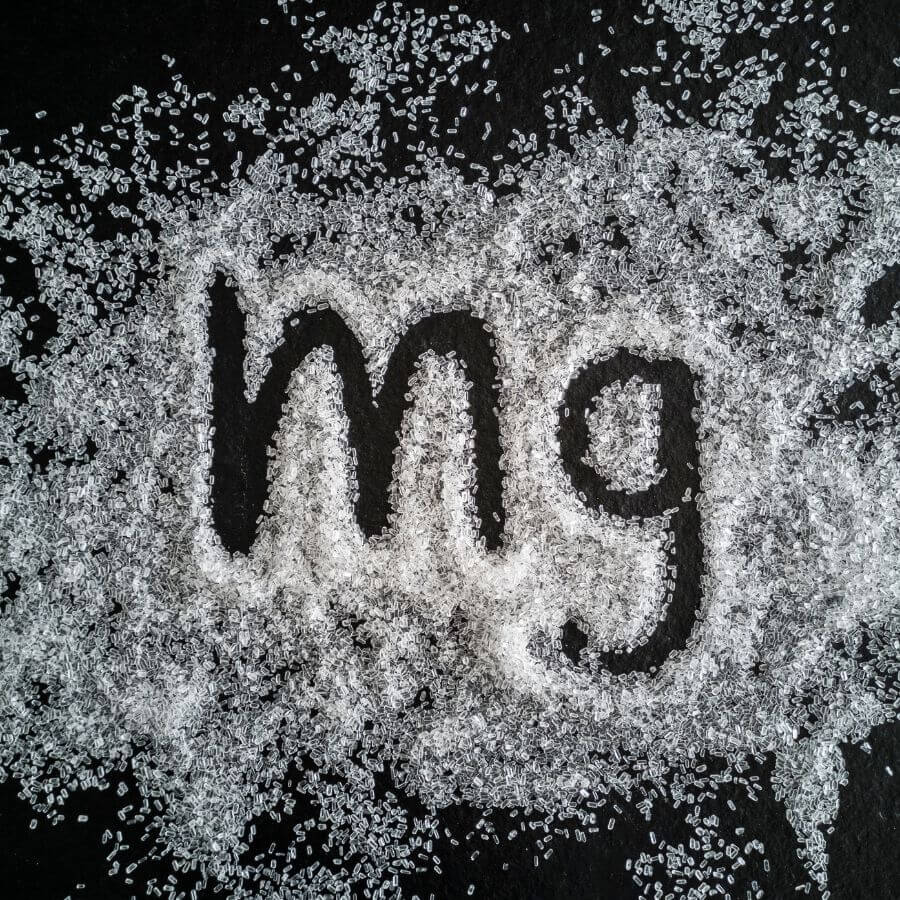Is Magnesium Lotion a Scam?
 Magnesium lotions promise to relieve sore muscles, put fussy toddlers to sleep, and help soothe the nervous system. But do magnesium lotions actually work? Is magnesium actually absorbed transdermally? What does the research say? Is magnesium lotion a scam? Let's take a look.
Magnesium lotions promise to relieve sore muscles, put fussy toddlers to sleep, and help soothe the nervous system. But do magnesium lotions actually work? Is magnesium actually absorbed transdermally? What does the research say? Is magnesium lotion a scam? Let's take a look.
The Claims
Magnesium lotions have become popular as home remedies to get children to sleep, to help sore and twitchy muscles, and to ease anxiety. After enduring trauma, I was advised to use magnesium lotions to help replenish depleted minerals. And indeed, magnesium plays a huge role in a number of functions in the body.
Magnesium deficiency can be associated with:
- anxiety/depression
- muscle weakness
- headaches
- nausea
- insomnia
- muscle spasms
- constipation
- heart palpitations
- sodium retention
- insulin resistance
- diabetes
- thyroid dysfunction
- osteoporosis
- chronic fatigue
- asthma
- high blood pressure
(source)
Magnesium is an essential electrolyte used in more than 300 enzymatic functions in the body and unlike calcium and sodium, can be in short supply in our diet. Additionally chronic stress depletes magnesium stores. Rarely does conventional medicine test for magnesium deficiency when a patient presents with many of these symptoms, and instead people are given prescriptions to manage symptoms. (source)
 Many alternative practitioners and influencers recommend the use of transdermal magnesium in the form of lotions, oils, and baths to replenish depleted cellular magnesium. The theory is that transdermal magnesium is superior to oral supplementation and reaches the muscles and tissues more readily than through the digestive system and then the bloodstream. Oral magnesium supplements can have digestive side effects at times, so transdermal magnesium is appealing to many. But is magnesium lotion a scam?
Many alternative practitioners and influencers recommend the use of transdermal magnesium in the form of lotions, oils, and baths to replenish depleted cellular magnesium. The theory is that transdermal magnesium is superior to oral supplementation and reaches the muscles and tissues more readily than through the digestive system and then the bloodstream. Oral magnesium supplements can have digestive side effects at times, so transdermal magnesium is appealing to many. But is magnesium lotion a scam?
The Research
A study published in 2010 in the journal Nutrition in Clinical Practice found that subjects treated with a magnesium lotion showed a larger percentage rise in both serum and urinary magnesium markers compared with subjects using a placebo cream. The difference was small but statistically significant. However, the study was associated with doctors that may receive royalties from a magnesium lotion and only had 9 test subjects. (source)
How and if magnesium is absorbed in significant quantities is still being elucidated. One good point this article makes is that the dead sea contains an extremely high concentration of magnesium. If we absorbed high amounts of magnesium through the skin, people that swim in the Dead Sea would experience hypermagnesemia (magnesium toxicity) which is not documented to be the case. (Although in cases of drowning where high amounts of Dead Sea water were ingested, electrolyte imbalances and toxicity are common.)
In 2003 and again in 2009, the Israeli military tested the safety of a magnesium lotion that was formulated to protect from chemical warfare agents. Despite repeated and prolonged wearing of the magnesium lotion, no increase in blood magnesium levels were found. (source)
Finally, a 2023 study looked at transdermal magnesium on patients with kidney disease. Magnesium was able to help with neuropathy pain but despite daily application, serum magnesium levels did not increase. (source)
Magnesium deficiency has been associated with psoriasis and topical magnesium has long been a treatment for psoriasis. (source)
The Physiology
 Epidermis is comprised of several layers of keratinized cells that act kind of like scales. This protective layer keeps many substances out, including magnesium. Substances can permeate the epidermis if it's damaged or if the compounds are oil-soluble. Magnesium compounds are typically only water-soluble and epidermal penetration minimal. However one 2016 study out of Australia found that magnesium compounds CAN enter the body through hair follicles and sweat glands. This may explain why a small amount of magnesium can enter the body through transdermal application. (source)
Epidermis is comprised of several layers of keratinized cells that act kind of like scales. This protective layer keeps many substances out, including magnesium. Substances can permeate the epidermis if it's damaged or if the compounds are oil-soluble. Magnesium compounds are typically only water-soluble and epidermal penetration minimal. However one 2016 study out of Australia found that magnesium compounds CAN enter the body through hair follicles and sweat glands. This may explain why a small amount of magnesium can enter the body through transdermal application. (source)
The Bottom Line
Magnesium is a critical electrolyte and many of us are deficient. However, the evidence of benefit of transdermal magnesium is controversial and limited. If you suspect you're magnesium deficient, the benefits of oral supplementation is well-documented.
So, is magnesium lotion a scam? I wouldn't go that far as to call it a scam, but something with limited evidence to back it up. That said, the act of self-care associated with magnesium lotions and baths may support mental health, which then has implications for physical health. So if you enjoy your magnesium bath or lotion and personally feel benefits, there's no harm in using it. However, if your progress is slow, you may consider adding a magnesium supplement to your routine. (Here's what I'm taking)
[This does not constitute medical advice; please consult a medical professonal before taking any new supplements.]
Recent Posts
-
Is Charcoal Safe in Deodorant?
Activated charcoal has become a popular natural ingredient in toothpaste, deodorant, soaps, facial c …5th Mar 2024 -
Is Stevia an Endocrine Disruptor?
Is Stevia an Endocrine Disruptor?Stevia rebaudiana, an herb native to Paraguay and Brazil, contains …9th Feb 2024 -
Is Aloe Vera Toxic?
Containing more than 200 different chemical compounds, aloe vera plants and extracts have long been …9th Feb 2024

